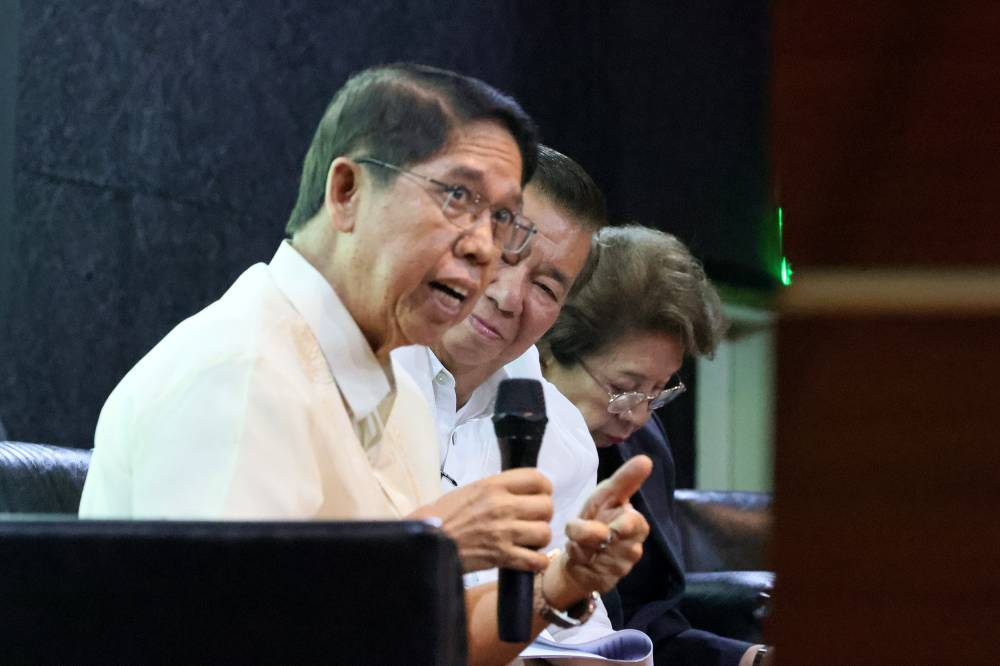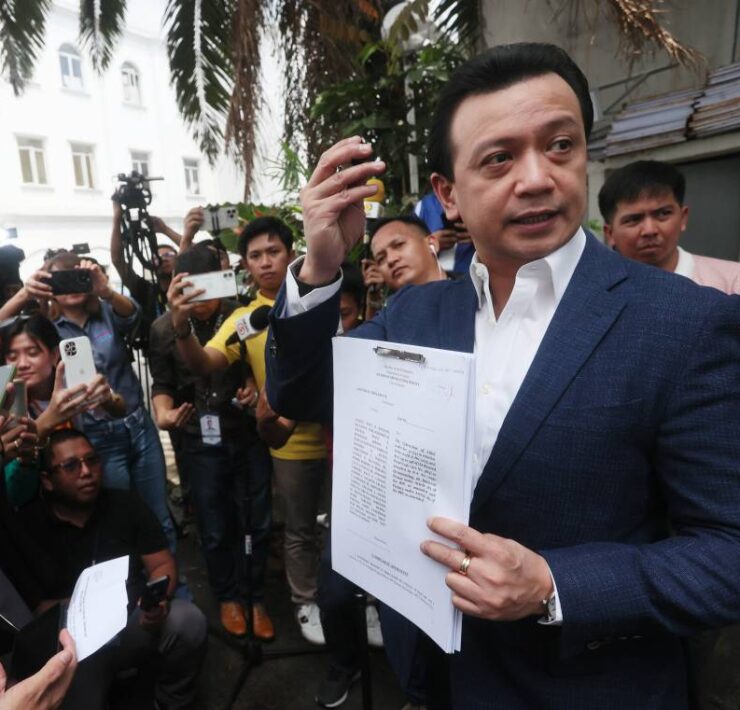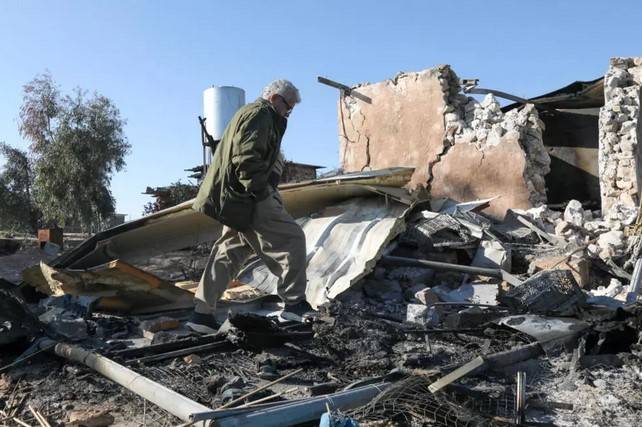Convene impeach court right away, says Con-com member

- Lawyer Rene Sarmiento, one of the 1987 Constitution framers, rebuts SP Chiz Escudero: Framers used the term “forthwith” precisely to mandate immediate action, given the time-sensitive nature of impeachment.
- Sarmiento said the provision was a “novel addition” not found in the 1935 and 1973 Philippine charters or the 1787 Constitution of the United States.
- Ex-Ombudsman Conchita Carpio-Morales said that while forthwith means immediately and at once, it also has to consider “reasonable delay,” in this case, the legislative recess and the upcoming elections, which could “abate the word forthwith.”
One of the framers of the 1987 Constitution said the Senate, acting as an impeachment court, should immediately begin the trial of Vice President Sara Duterte since the time-sensitive nature of impeachment was the reason they used the term “forthwith” in the provisions pertaining to the political exercise.
“[Forthwith] means right away, immediately—no hesitation, no doubt, act without delay,” lawyer Rene Sarmiento said on Wednesday during a forum on the Duterte impeachment case.
Sarmiento’s view contrasts with Senate President Francis “Chiz” Escudero’s position that the impeachment process need not begin immediately after the House of Representatives endorses the complaint to the Senate.
The forum was organized by the University of the Philippines College of Law and the Malcolm Foundation. On the panel with Sarmiento were former Sen. Franklin Drilon, a member of the Estrada and Corona impeachment courts; retired Supreme Court Associate Justice and Ombudsman Conchita Carpio-Morales; Sarmiento, a member of the 1986 Constitutional Commission; constitutional law professor Gwen De Vera; and former Supreme Court spokesperson Theodore Te.
‘Novel addition’
Sarmiento, a member of the constitutional commission (ConCom) that was formed after the 1986 Edsa People People revolution, said the “forthwith” provision was a “novel addition” not found in the 1935 and 1973 Philippine charters or the 1787 Constitution of the United States.
The immediacy and urgency of trial, he said, can be drawn from the intent of the framers of the Constitution and from the exchanges of the commission on the “time-compelling significance of impeachment.”
He added that during their exchanges, Commissioner Regalado Maambong said impeachment is “not personal punishment or vendetta, but primarily to maintain constitutional government.”
Carpio-Morales, on the other hand, said that while forthwith means immediately and at once, it also has to consider “reasonable delay,” in this case, the legislative recess and the upcoming elections, which could “abate the word forthwith.”
“According to Black Dictionary, forthwith means immediately, at once, but it also considers reasonable delay under the circumstances of the case. To me, the fact that the Senate is on recess and that some of the Senate members, senators, current senators are running for re-election to these constituent circumstances that can abate the use of the word forthwith,” Carpio-Morales said.
Factors beyond control
The impeachment complaint, which was endorsed by 215 House lawmakers, accuses the Vice President of culpable violation of the Constitution, bribery, graft and corruption, betrayal of public trust and other high crimes.
De Vera agreed with Carpio-Morales’ argument on “reasonableness,” noting that “if the action of the Senate is not animated or motivated by imposing undue delay in commencing the proceedings, I think they would well be in compliance with the constitutional mandate to proceed with the impeachment trial forthwith.”
Te agreed, saying that the question on the term “forthwith” must also take into account “things that the Senate cannot control,” like the congressional recess.
“The objective circumstances being that the transmittal was made on the last day of the session, and they had gone into recess before they had referred it to the impeachment court. Therefore, that may constitute, even though there is a span of time that intervenes, that may constitute a reasonable delay, as it were, and would not frustrate the meaning of the word forthwith,” Te said.
Undue delay
Ex-Bayan Muna representative Neri Colmenares, a former impeachment prosecutor himself, however, said the Senate could finish the impeachment trial before June 30 if it wanted to.
In an interview on ABS-CBN News Channel’s “Headstart,” Colmenares said the Senate can convene long before June 2.
“If they focus on one ground, betrayal of public trust, and one or two acts … this is a very strong case. They can finish it in one month’s time or more than a month even. After all you only need one ground to convict. It’s game over,” he said.
He added that President Marcos could call for a special session if the Senate raises the need for one. He cited the November 2023 state visit of then Japan Prime Minister Fumio Kishida when the Senate and the House convened a special joint session to welcome the head of state.
He further noted that in previous impeachment complaints against Chief Justice Renato Corona, Ombudsman Merceditas Gutierrez, and President Joseph Estrada, the impeachment court was convened and the trial proceeded immediately after the articles of impeachment were transmitted to the Senate.
“Four to five months of delay is an undue delay that is no longer within the contemplation of the word ‘forthwith’ (in the 1987 Constitution),” he said, referring to the Senate’s plan to convene as an impeachment court on June 2 when Congress resumes session.
Back at the UP forum, Drilon said he could not accept the proposition to defer such a critical constitutional duty “simply because the Senators will be campaigning.”
“We give ordinary meaning to ordinary words. Forthwith means immediately. And it is my respectful submission that the campaign period is not a valid reason to postpone,” Drilon said.
“And in fact, there should be no circumstance to justify a deferment because the Constitution mandates the performance of a constitutional duty forthwith,” he added.
Resignation scenario
Some were of the opinion, however, that the Senate could still put Duterte on trial in the next Congress should she decide to step down to escape the possibility of conviction in an impeachment court.
Carpio-Morales said the resignation of an impeached public official does not lead to the dismissal of the articles of impeachment brought by the majority of the House.
“Impeachment is not for the protection of the respondent. It’s for the prevention of abuses—continuous abuses—and for the protection of the public from being the subject of corruption, bribery, high crimes,” she said.
This, she stressed, could be the scenario only if Duterte bows out in the middle of the impeachment trial. Resigning before the Senate convenes as a court, if a trial would even materialize, is another story.
The former Ombudsman under the administration of Benigno Aquino III recalled the case of her predecessor, Merceditas Gutierrez who “went scot-free” after quitting her post in April 2011, just weeks before her scheduled trial in the Senate.
Drilon added that the Senate could still convene as an impeachment court “for the purpose of perpetual disqualification” as it is within its power and jurisdiction.
“There is a second consequence to impeachment, which is not just removal, but also disqualification from office,” the former justice secretary explained.
“And a unique feature of that is that unlike any other penalty in law, the disqualification from office is actually not pardonable. So it’s a very high penalty that the Senate can impose,” he added.—WITH A REPORT FROM JEANNETTE I. ANDRADE





















